BigButzBBQ
is Blowin Smoke!
- Joined
- Mar 16, 2010
- Location
- Northwes...
Greetings Friends, Family, and fellow cooking addicts!
Have you been looking at a piece of cast iron cookware and been wondering what it would be like to own it?
Have you come across a piece of cast iron that hasn't been "seasoned" and you are nervous about doing it yourself and therefore you haven't bought it even though you go to bed every night dreaming about it and lusting for the food you could potentially cook with it?
Do you own a cast iron piece of cook ware that has been assaulted to the point where all the "seasoning" has come off and now you think it's ruined?
Are you just curious about what the heck "seasoning" exactly is?
Worry and wonder no further! Go out and buy that piece of mythical cook ware or get ready to revitalize that long lost friend you miss cooking on!
I recently purchased a cast iron wok and during the seasoning process I took a few pictures to share with you all on the process.
What is cast iron "seasoning"? Glad you asked! Seasoning is the process of imparting oil/fats to bare metal to provide it with a rust resistant non-stick coating. The rust resistance comes from the oil/fats filling in the pores of the metal and providing a water barrier. The non stick comes from not only the filling in of the pores of the metal but also because in the metals raw form it is covered with microscopic jagged peeks and the oil coats the peeks and fills in any other "valleys" there might be between the peeks creating the smooth surface.
Alright, enough of that. On to the actual seasoning process I use!
First acquire a new piece of "un-seasoned" or raw cast iron.
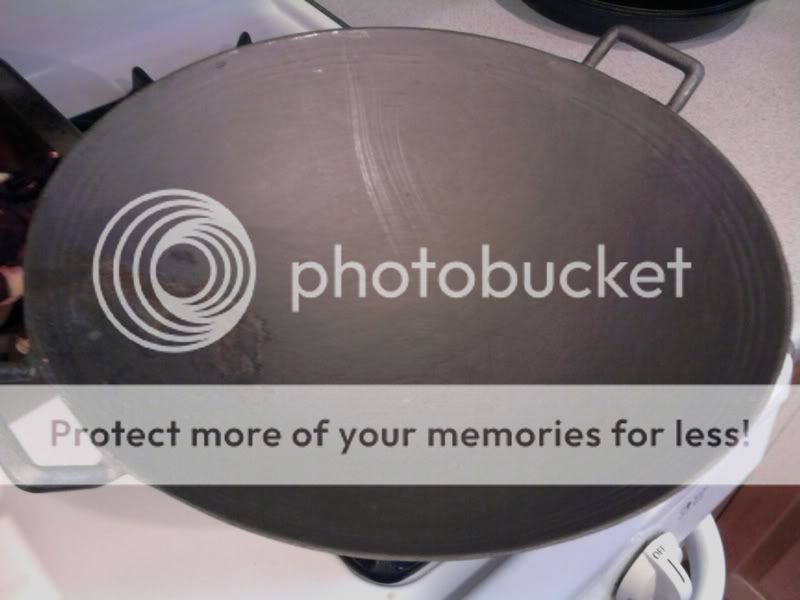
Next, get out a cookie sheet or pan big enough to put the piece of cast iron on.
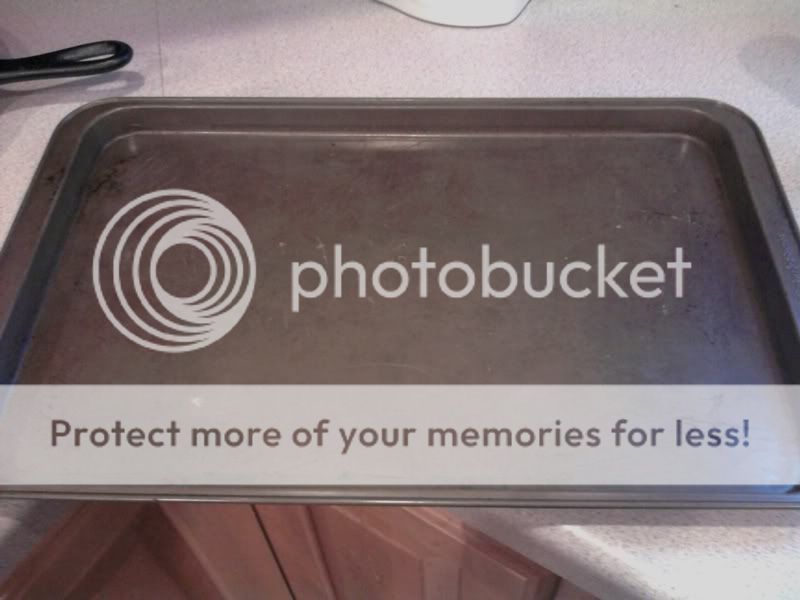
Crank up your oven to 450 degrees!
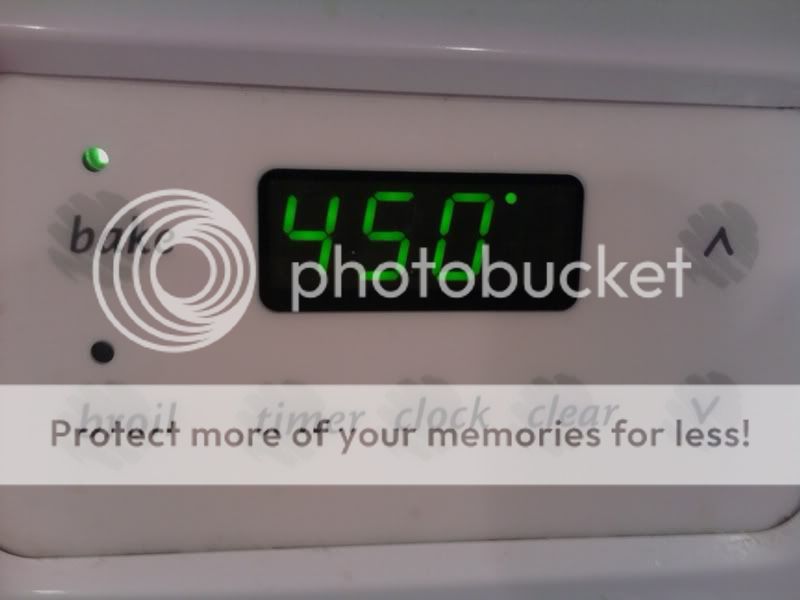
Next get out some form of fat or oil suitable for high heat cooking. Such as, lard, peanut oil, crisco, or, my personal favorite, BACON GREASE! There are some other options but, these are some of the most popular ones.

Now, add some of the oil/fat to the cast iron. Not much, a little will go a very long way. Then grab a paper towel and fold it up.
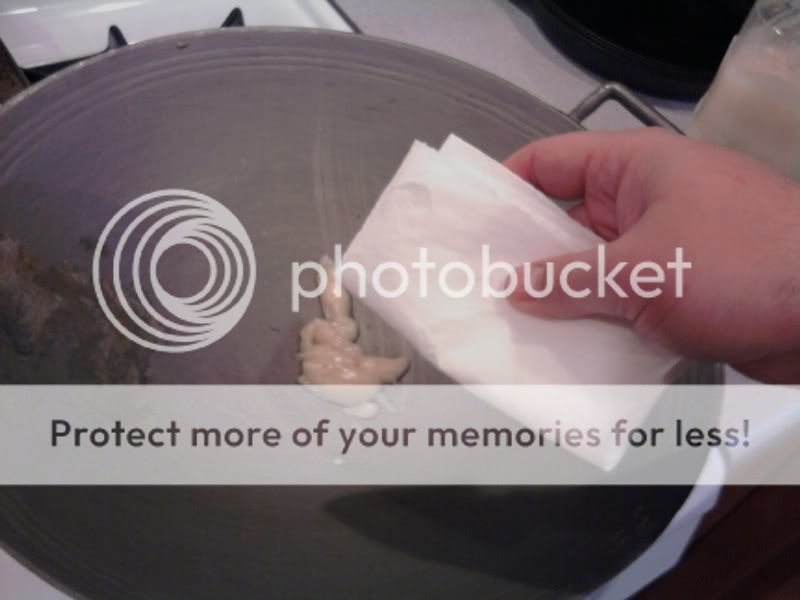
Start rubbing the oil/fat into the cast iron.
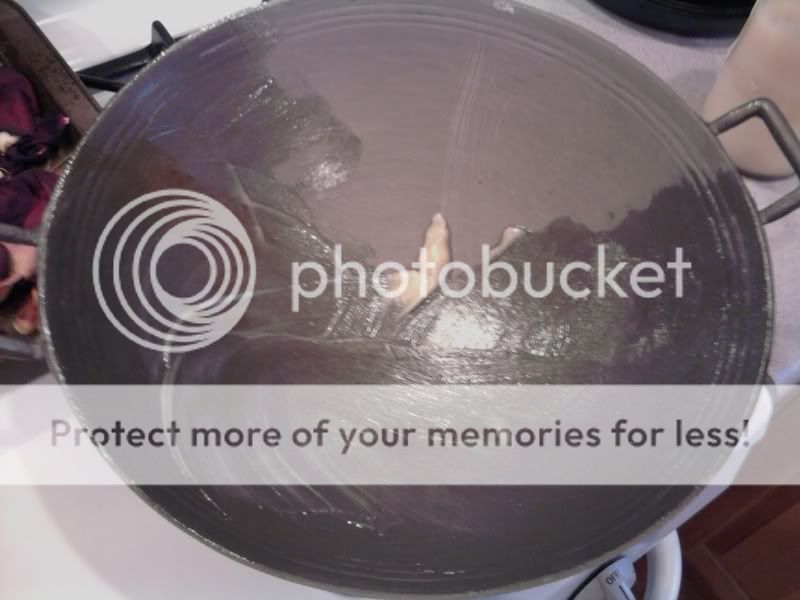
The metal will have a nice even sheen to it when you get done.

Don't forget to flip it over and coat all the sides. Now remember we are doing this not only to create non-stick but, to prevent rusting and therefore we season the entire piece of cast iron.
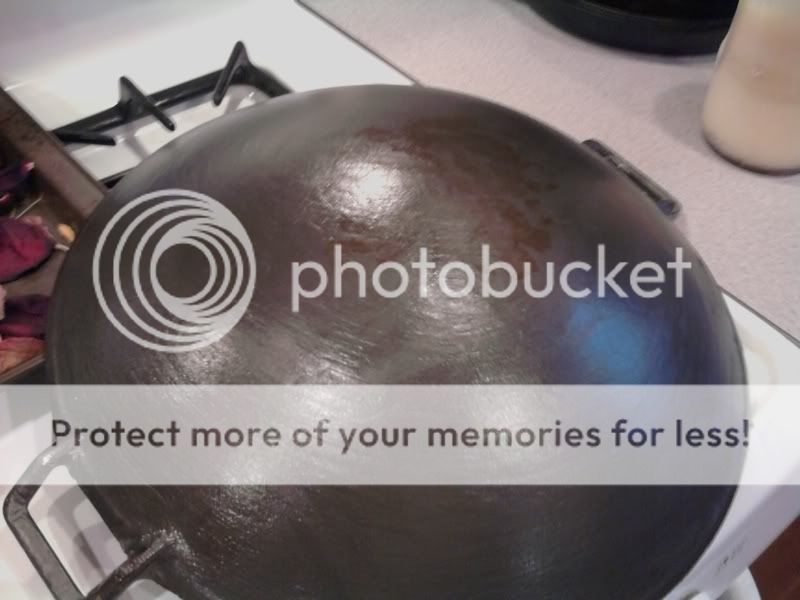
Set it on the pan you have already set aside.

Then into the oven it goes! Warning! Make sure to have a fan going as there may be some smoke.
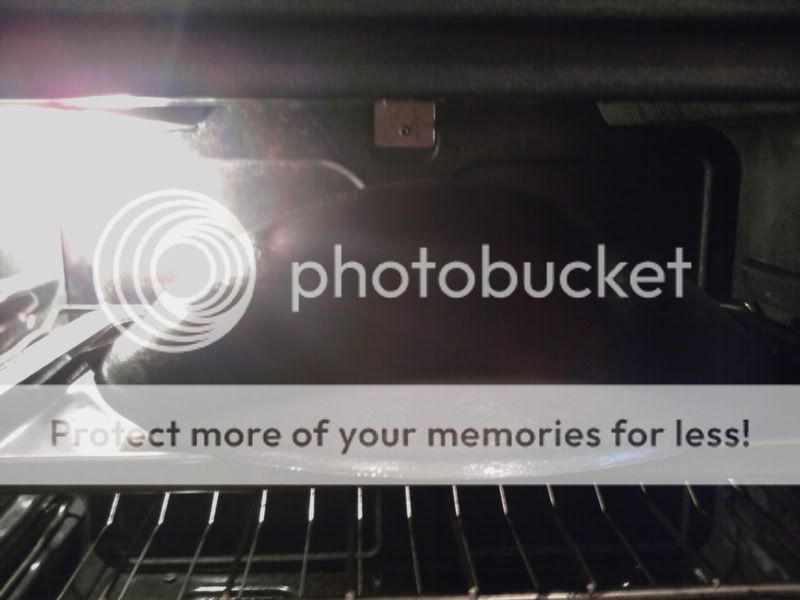
After about 25 minutes take the pan out and let it cool. You should notice that it has taken on an almost satin like finish.
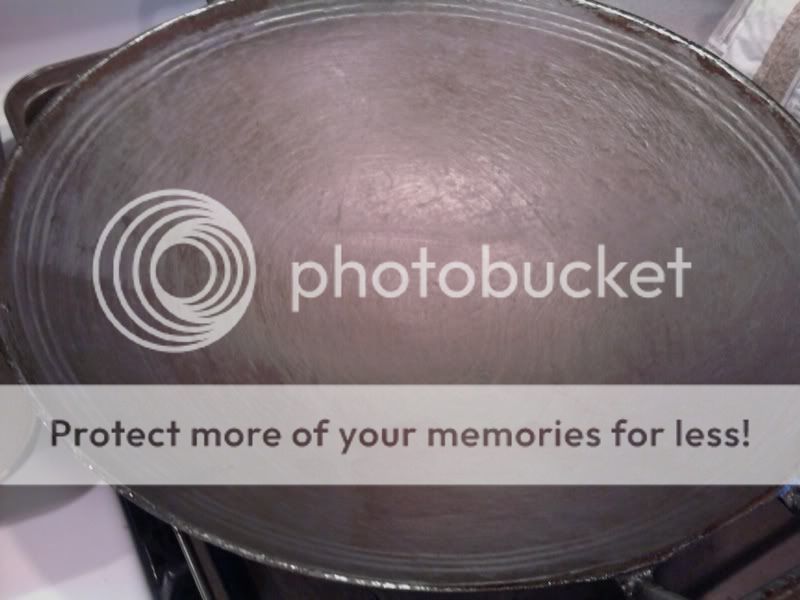
Once it's cooled, time to do it all again! Start with some more oil/fat, less than even before. Rub it in again and back in the oven it goes for another 25 minutes.
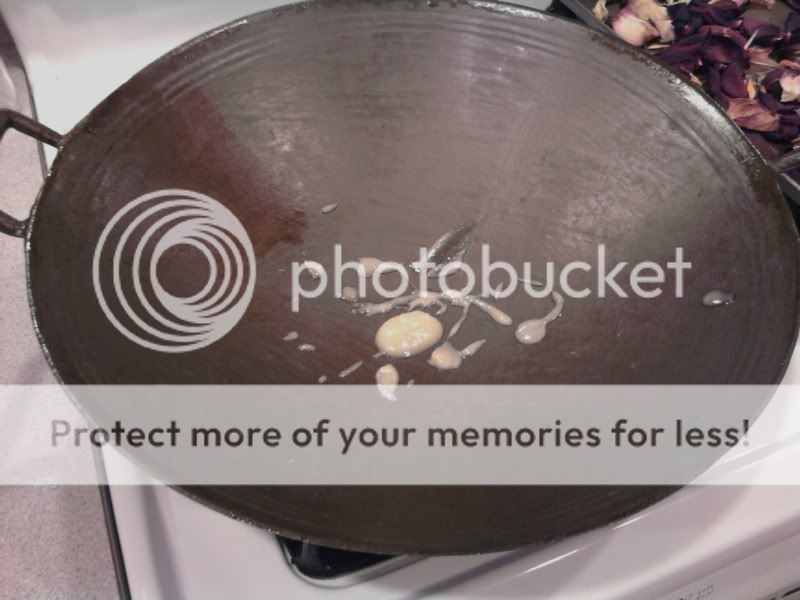
Once it has cooled, there is one last thing to do before its first use. Take some aromatics such as, onions, shallots, or garlic, and cook them on the piece before actually cooking anything on it. This will start the wonderful imparting of flavors into your food off on the right foot. In my case, I took a head of garlic and chopped it in half.
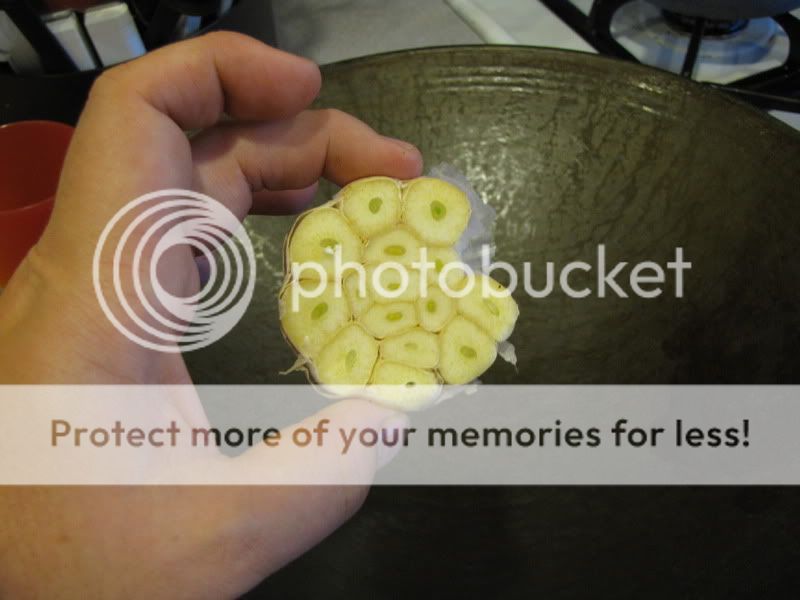
I then took the garlic and firmly rubbed it all along the cooking surface.
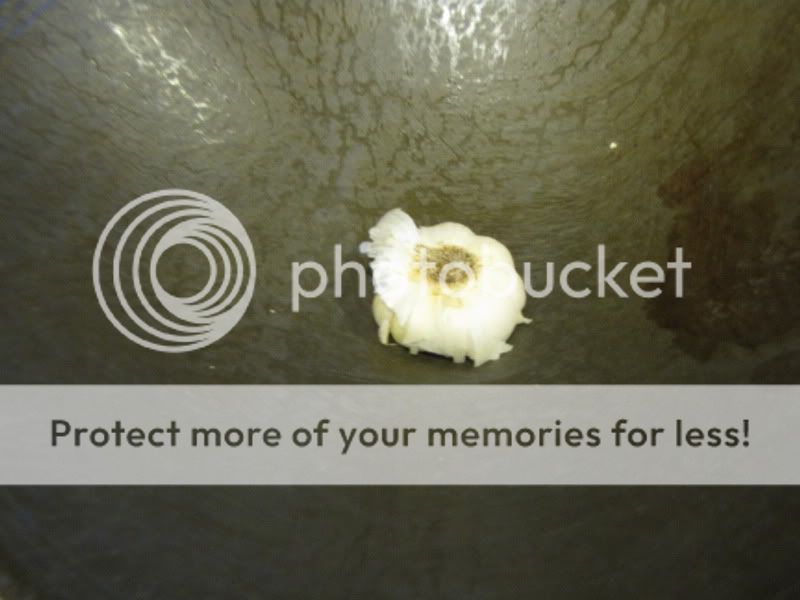
Your cast iron is officially ready to cook with!
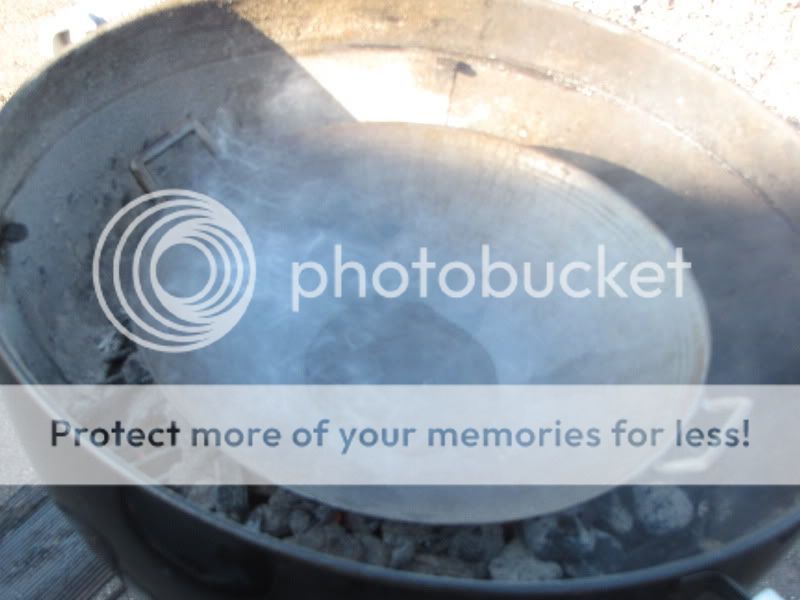
But what about cleaning it and maintaining it? Simple, never, ever, use soap on your cast iron. It could remove the seasoning and cause you to have to start the whole process over again. To clean, just use warm water and a cloth. If you have stuff that is really stuck you can use some form of a soft scrub or invest in a wok brush. These are designed to not scratch the metal. You can fill it with water and allow the stuff to soak and come off that way but, make sure you immediately towel dry afterwards! To insure that you protect your cast iron from rust, besides drying it immediately, you should also give it a very, light coating oil before storing it.
For those who are worried about possible germs or bacteria due to not using soap, remember your cast iron is going to be cooked on. Meaning it is going to become so hot that none of these nasty little critters can survive, potentially even in the handle so make sure to always use an oven mitt when grabbing them.
Hope this helped out some and caused them to get over their fears of owning cast iron.
Thanks for looking!
Have you been looking at a piece of cast iron cookware and been wondering what it would be like to own it?
Have you come across a piece of cast iron that hasn't been "seasoned" and you are nervous about doing it yourself and therefore you haven't bought it even though you go to bed every night dreaming about it and lusting for the food you could potentially cook with it?
Do you own a cast iron piece of cook ware that has been assaulted to the point where all the "seasoning" has come off and now you think it's ruined?
Are you just curious about what the heck "seasoning" exactly is?
Worry and wonder no further! Go out and buy that piece of mythical cook ware or get ready to revitalize that long lost friend you miss cooking on!
I recently purchased a cast iron wok and during the seasoning process I took a few pictures to share with you all on the process.
What is cast iron "seasoning"? Glad you asked! Seasoning is the process of imparting oil/fats to bare metal to provide it with a rust resistant non-stick coating. The rust resistance comes from the oil/fats filling in the pores of the metal and providing a water barrier. The non stick comes from not only the filling in of the pores of the metal but also because in the metals raw form it is covered with microscopic jagged peeks and the oil coats the peeks and fills in any other "valleys" there might be between the peeks creating the smooth surface.
Alright, enough of that. On to the actual seasoning process I use!
First acquire a new piece of "un-seasoned" or raw cast iron.

Next, get out a cookie sheet or pan big enough to put the piece of cast iron on.

Crank up your oven to 450 degrees!

Next get out some form of fat or oil suitable for high heat cooking. Such as, lard, peanut oil, crisco, or, my personal favorite, BACON GREASE! There are some other options but, these are some of the most popular ones.

Now, add some of the oil/fat to the cast iron. Not much, a little will go a very long way. Then grab a paper towel and fold it up.

Start rubbing the oil/fat into the cast iron.

The metal will have a nice even sheen to it when you get done.

Don't forget to flip it over and coat all the sides. Now remember we are doing this not only to create non-stick but, to prevent rusting and therefore we season the entire piece of cast iron.

Set it on the pan you have already set aside.

Then into the oven it goes! Warning! Make sure to have a fan going as there may be some smoke.

After about 25 minutes take the pan out and let it cool. You should notice that it has taken on an almost satin like finish.

Once it's cooled, time to do it all again! Start with some more oil/fat, less than even before. Rub it in again and back in the oven it goes for another 25 minutes.

Once it has cooled, there is one last thing to do before its first use. Take some aromatics such as, onions, shallots, or garlic, and cook them on the piece before actually cooking anything on it. This will start the wonderful imparting of flavors into your food off on the right foot. In my case, I took a head of garlic and chopped it in half.

I then took the garlic and firmly rubbed it all along the cooking surface.

Your cast iron is officially ready to cook with!

But what about cleaning it and maintaining it? Simple, never, ever, use soap on your cast iron. It could remove the seasoning and cause you to have to start the whole process over again. To clean, just use warm water and a cloth. If you have stuff that is really stuck you can use some form of a soft scrub or invest in a wok brush. These are designed to not scratch the metal. You can fill it with water and allow the stuff to soak and come off that way but, make sure you immediately towel dry afterwards! To insure that you protect your cast iron from rust, besides drying it immediately, you should also give it a very, light coating oil before storing it.
For those who are worried about possible germs or bacteria due to not using soap, remember your cast iron is going to be cooked on. Meaning it is going to become so hot that none of these nasty little critters can survive, potentially even in the handle so make sure to always use an oven mitt when grabbing them.
Hope this helped out some and caused them to get over their fears of owning cast iron.
Thanks for looking!

